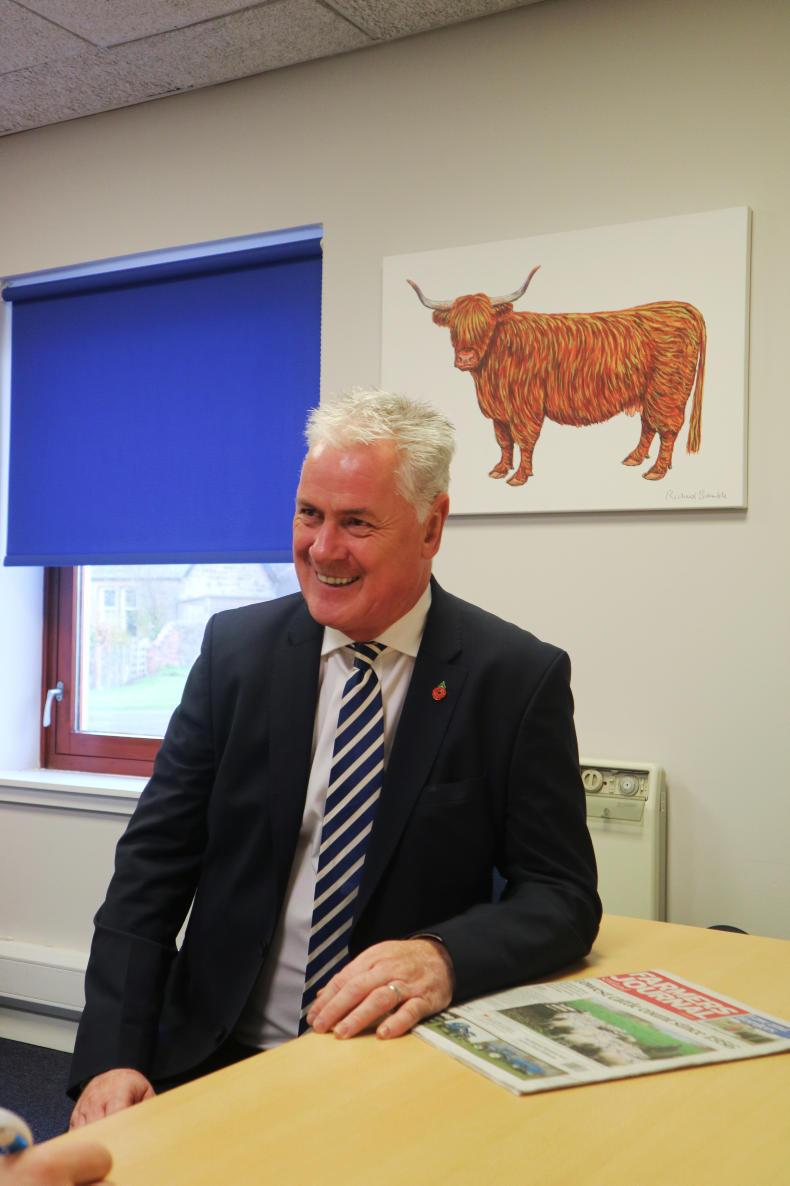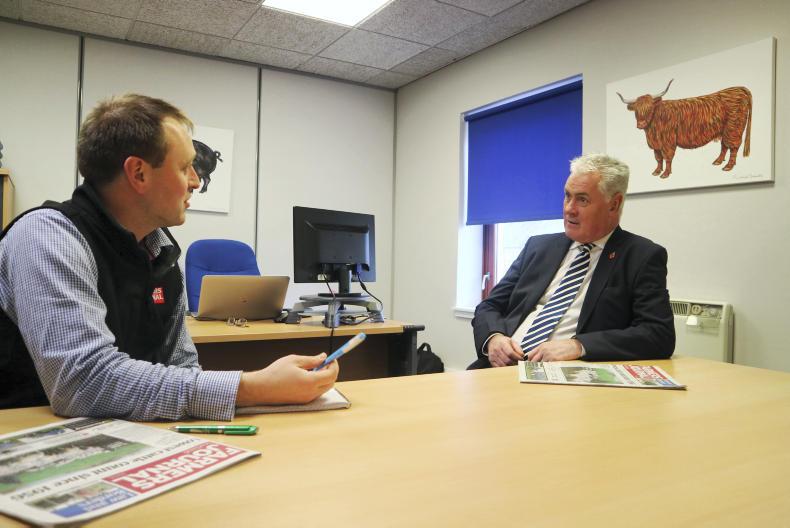As someone coming into the sector from a very different background, what are your initial impressions of the industry?
“During my initial months as chief executive I have made it a priority to get out and about to meet people in each part of the industry – from farmers to processors, butchers and cutting plants, along with other key stakeholders.
“I have the benefit of a ‘fresh pair of eyes’ and have been impressed by the passion, pride and professionalism in the Scottish red meat chain, and I am looking forward to working with an industry which is at the heart of Scotland’s excellent larder, with brands which are renowned for quality around the world.”
What do you view as the biggest challenges the Scottish red meat industry faces?
“I am very aware of the prevailing concern about the impact of Brexit and changes to the way agricultural support is delivered, as well as the implications for international trade and migrant labour.
“However, one of our industry’s biggest challenges is delivering a margin for each link of the chain to ensure businesses are sustainable. We also have three key challenge areas in terms of consumer confidence – red meat and human health, animal welfare and the environment.
“One concern is that the industry has a tendency to talk itself down, which can distract attention from our strengths and the aspects of business performance we can control.
“There is always room in any business to further improve efficiency and we know there is a huge difference between the performance of our top-third producers and bottom third. It is, therefore, great to see the industry increasingly embracing benchmarking and other efficiency tools to help future-proof its businesses.”
QMS does, however, come under occasional scrutiny for its industry development work, like the grazing and monitor farm projects?
“Our strategy, set by the QMS board, includes a focus on improving the efficiency of our industry and this is something our processor levy payers view as very important. Our industry development work is vital, but represents a very small part of our overall external spend of levy income – just 14%. This is partly due to the success of the team in securing external grants, as well as partnership working.”
What is the levy spent on then?
“The vast majority of QMS levy income (around 77%) is spent on consumer-facing activity, including marketing and health and education activity.”
How successful are the marketing campaigns behind the brands?
“QMS has a strong track record of delivering successful marketing campaigns, supported by engaging public relations activity.
“Last year’s Scotch lamb marketing campaign saw the value of identified Scottish-origin lamb sales increase by 10.5%. Scotch Lamb PGI as a brand is recognised by 79% of our target market and the Scotch beef campaign helped to push retail sales of Scottish-origin beef up by 18.3% last year.”
You were previously chief executive of Scottish bakers – are there parallels between the two industries?
“The bakers’ sector is very traditional and both industries are steeped in heritage and fortunate to have iconic products – whether oatcakes and shortbread, or Scotch pies and Scotch beef. Both industries are also benefitting from the surge of interest in ‘food TV’ and have skilled and passionate people behind them. The red meat sector in Scotland has a worldwide reputation built on its PGI brands and there is a real opportunity to further build on the work already done to promote the Scotch Beef PGI, Scotch Lamb PGI and Specially Selected Pork brands.”
You are looking at the potential of DNA testing to secure the integrity of the Scotch beef brand. What are key advantages of this scheme for farmers?
“The introduction of a DNA monitoring programme would further strengthen the many steps already in place to prevent fraud and to underpin the integrity of the Scotch Beef PGI brand and the premium farmers receive.”
What do you see as your priorities in your first year with QMS?
“I am fortunate to have a team of staff who are very professional and committed. The range of work undertaken is very broad and one of my priorities will be improving awareness of all that QMS does, by farmers and other stakeholders.
“I will also be taking a careful look at our strategy and structures to ensure QMS is working as effectively as possible and fully delivering value for money for levypayers. A further priority will be building even stronger partnerships with our stakeholders, which is key to ensuring our industry is as well positioned for the post-Brexit era.”
How positive are you about the future of the Scottish red meat industry?
“Very positive. I am also fully committed to ensuring QMS is well placed to work side-by-side with the industry as we move forward into a new era.”






 This is a subscriber-only article
This is a subscriber-only article






SHARING OPTIONS: